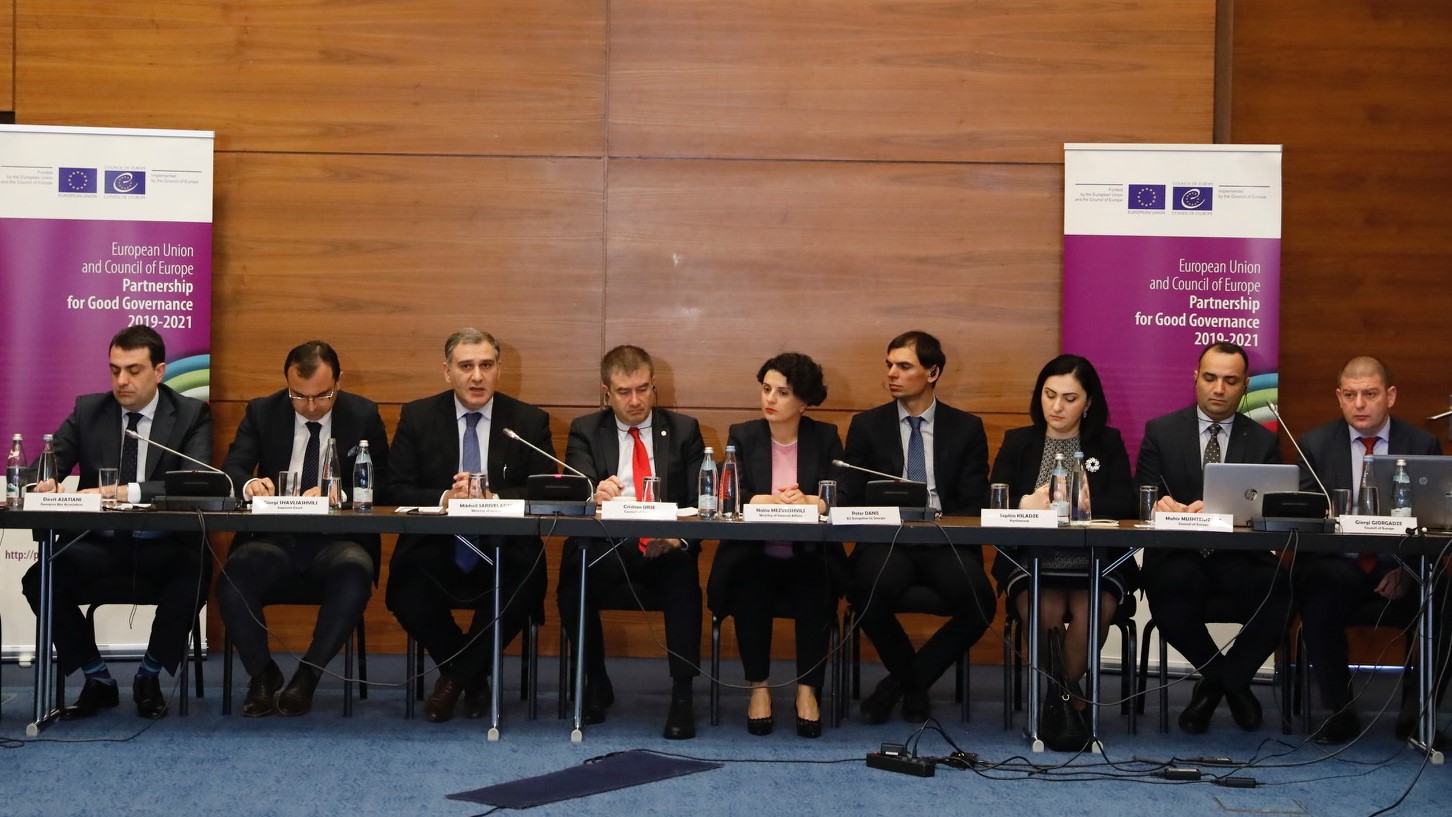Active efforts were undertaken to bring criminal procedure legislation in Georgia closer to the ECHR standards in the framework of PGG II Project “Supporting the criminal justice reforms - tackling criminal aspects of the judicial reforms in Georgia”. Following the results of high-level event organized on 15 April 2019 to identify and take stock of shortcomings in the criminal procedure legislation, a group of international experts were deployed in March 2020 to examine Criminal Procedure Code of Georgia and related laws regulating primarily the operation of law enforcement agencies.
The expert group shall explore such topics as plea bargaining framework, victims status, fair trial standards, collection and usage of evidence, system of pre-trial measures, application of coercive measure, role of judge and protection of human rights at all stages of criminal procedure. First intermediate findings were discussed at online expert group meeting organized on 30 April 2020.
The initial observations were exchanged in the light of execution of ECtHR judgments and systematic problems identified by the European Court that helped mapping further work. Development of the legislative amendments and recommendations to improve the framework of by-laws will be followed after the review.





